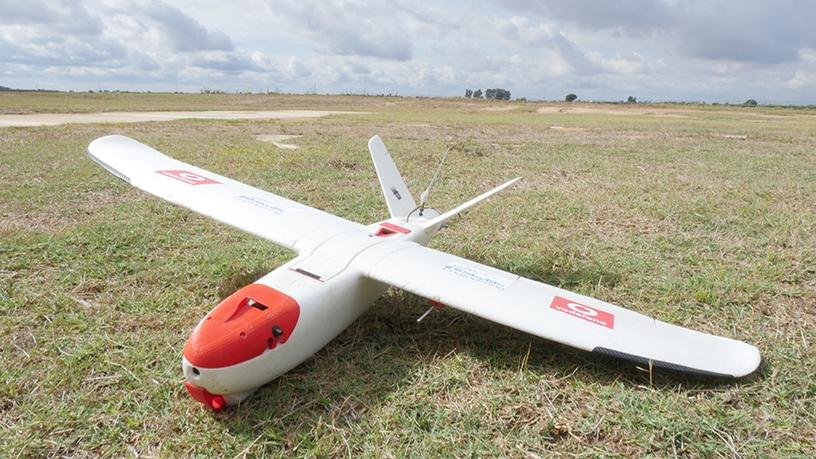
Vodafone's air traffic control drone tracking and safety technology may be available in SA very soon, says Deon Liebenberg, managing executive for the Internet of things (IOT) at Vodacom.
Liebenberg was speaking on the back of Vodafone's announcement yesterday that it has developed and is testing the Radio Positioning System (RPS), an airborne drone detection system based on 4G M2M mobile phone technology.
"The IOT drone tracking and safety technology will be available in SA in the near future. This is another example of how an increasingly connected society will ultimately improve people's lives," he says.
As part of its rebranding strategy last year, the international telco made mention of the intention to shift its business focus from solely being a telecommunications network to adapting to technological advances and being a digital business.
Speaking at the time, Vodacom's chief of its consumer business unit, Nyimpini Mabunda, said the business will aggressively focus on innovation in the digital space to improve products and service.
"There are a lot of advances around IOT and artificial intelligence (AI) that are not around yet, but when they happen, Vodacom will be there and it will be one of the first, if not the first, to bring these technologies to market," Mabunda said.
Real-time tracking
The newly developed drone tracking technology, which according to Vodafone is a first of its kind, works by putting a standard 4G SIM card and radio onto a drone, and then tracking it through the system which includes in-house-developed AI algorithms.
"The 4G IOT tech will protect aircraft from accidents, as well as prevent criminal drone incursions at sensitive locations such as airports, prisons and hospitals. On a norm, commercial civilian drones are too small to be tracked by conventional radar. They present a serious risk to pilots worldwide, particularly in the immediate vicinity of airfields and airports," explains Vodafone group chief technology officer Johan Wibergh.
"RPS location data is harder to hack than GPS location data, and the data connection used to control the drone offers the operator advantages over current drone radio control protocols, including greater resilience and over-the-horizon real-time feedback. The system enables real-time tracking with up to 50m accuracy, protective geo-fencing, with drones pre-programmed to land automatically or return to the operator when approaching predetermined exclusion zones," he adds.
Vodafone first held preliminary trials late last year where it used its 4G network to control a 1.3m wingspan, 2kg X-UAV drone in Spain. Throughout the trial, the drone transmitted a real-time HD video feed and flight data, including speed, RPS location and GPS coordinates.
Further trials are being scheduled in Spain and Germany through 2018, with the intention of making the technology available for commercial use from 2019.
The technology behind RPS will in future also be utilised to boost the functionality of other IOT devices, says Wibergh. "From luggage tags to bicycles ? it could support or replace GPS in some IOT devices."
Worldwide drone spending will be $9 billion in 2018 and is expected to grow at a faster rate than the overall market with a five-year CAGR of 29.8%, says IDC.
Jacques Coetzee, head of drone development at TeleEye, a local remote visual solutions tech firm, says the system will be a welcome addition to the growing regional drone landscape.
"This is quite an exciting development that they've build onto their network. It will certainly enable the operating certificate holders to operate more safely.
"The verticals that we foresee will benefit the most from this technology will be quantity surveillance, mapping and surveying - with the added advantage of receiving HD video feeds being a real game-changer.
"We also anticipate that companies in the sector will adopt this technology as Vodacom has one of the widest network coverage, enabling them to improve their existing working systems," notes Coetzee.
Share